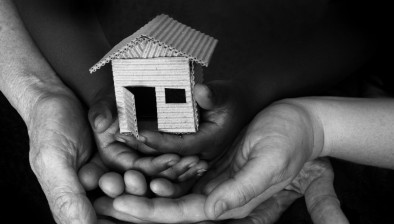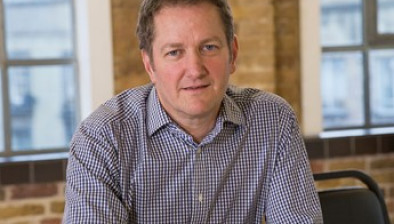Positive Action in Housing welcomes destitution report
 Positive Action in Housing has welcomed a Holyrood committee’s report which found insecure immigration status to be a key aggravating factor leading to destitution.
Positive Action in Housing has welcomed a Holyrood committee’s report which found insecure immigration status to be a key aggravating factor leading to destitution.
The equality and human rights committee’s report recognised the huge challenges facing people seeking safety in Scotland, stating that “destitution is built into the asylum process” as many of the avenues most people can use to find accommodation or social security are not available to those with ‘insecure’ immigration status.
Positive Action in Housing’s director, Robina Qureshi, said: “This report is a stark reminder that the UK asylum process, instead of sheltering vulnerable refugees while they try to build new lives, is fast-tracking men, women and children, into a deeper humanitarian crisis of absolute destitution in Glasgow and Scotland and the rest of the UK, and placing people who deserve protect at risk of further physical and sexual exploitation.
“We welcome efforts to tackle this poverty and suffering. This policy of enforced destitution is inflicted on some of the most vulnerable people in society to force people seeking refuge in the UK to return ‘home’. However, most people are unable to return because of war or persecution and are instead languishing for months and years in destitution, losing hope and relying on handouts from charities and faith groups.
“We thank Christina McKelvie MSP and the committee for taking our oral and written evidence. We are pleased that the Scottish Parliament’s equality and human rights committee has recognised Positive Action in Housing’s role in developing long-term solutions to the destitution of refugees.
“Positive Action in Housing provides a Scotland and UK wide refugee hosting programme to shelter vulnerable people trying to resolve their cases. The charity also distributes emergency crisis grants through a bespoke online system totalling around £45,000 – £50,000 a year. We reach the most needy through a national network of 270 caseworkers from refugee organisations and networks including British Red Cross, Freedom from Torture, social work, night shelters, refugee council and others. In addition, we offer an advice service to help families and individuals end destitution and build new lives.
“We welcome funds being provided for an advocacy service and a crisis grants fund. This would relieve some of the pressures of fundraising and help us reach the most needy.
“Having given evidence to the parliament on destitution, we hope this charity will be able to access funding to prevent and mitigate destitution of those in the asylum process or with insecure immigration status. This would help greatly to build on our existing destitution services to meet the needs of those affected by the ongoing refugee crisis.
“Scotland can be proud that it pioneered the concept of refugee hosting fifteen years ago. Through the Room for Refugees Programme, we have a significant resource of over 6,500 fully registered refugee hosts all over Scotland, England, Wales – and the US. The programme has provided tens of thousands of nights of safe shelter for families, abused women, young people, the elderly and sick. This amounts to government savings on accommodation and living costs that run into the millions. This would not be possible without the support of our volunteers, housing/trade unions members, donors and supporters.
“What we are building is a modern-day underground railroad, made up of dedicated people defying the inaction of governments to the global refugee crisis by lending a helping hand to men, women and children risking their lives for a better future.”
Launching the report, committee convener, Christina McKelvie MSP, said: “Our inquiry exposed a serious lack of compassion and humanity in the current system, which is leading hundreds to destitution. This is simply unacceptable.
“In spite of the best efforts of voluntary organisations and some in local government, there are huge gaps in the system that need to be addressed as a matter of priority.
“That’s why we are making both specific recommendations to all levels of government, and calling for a wider strategy to draw together all of the bodies who can improve this situation.
“With the ongoing refugee crisis and humanitarian problems around the world, this isn’t a problem likely to go away overnight. As a committee, we will keep an eye on progress, regularly checking improvement in the response to destitution.”






